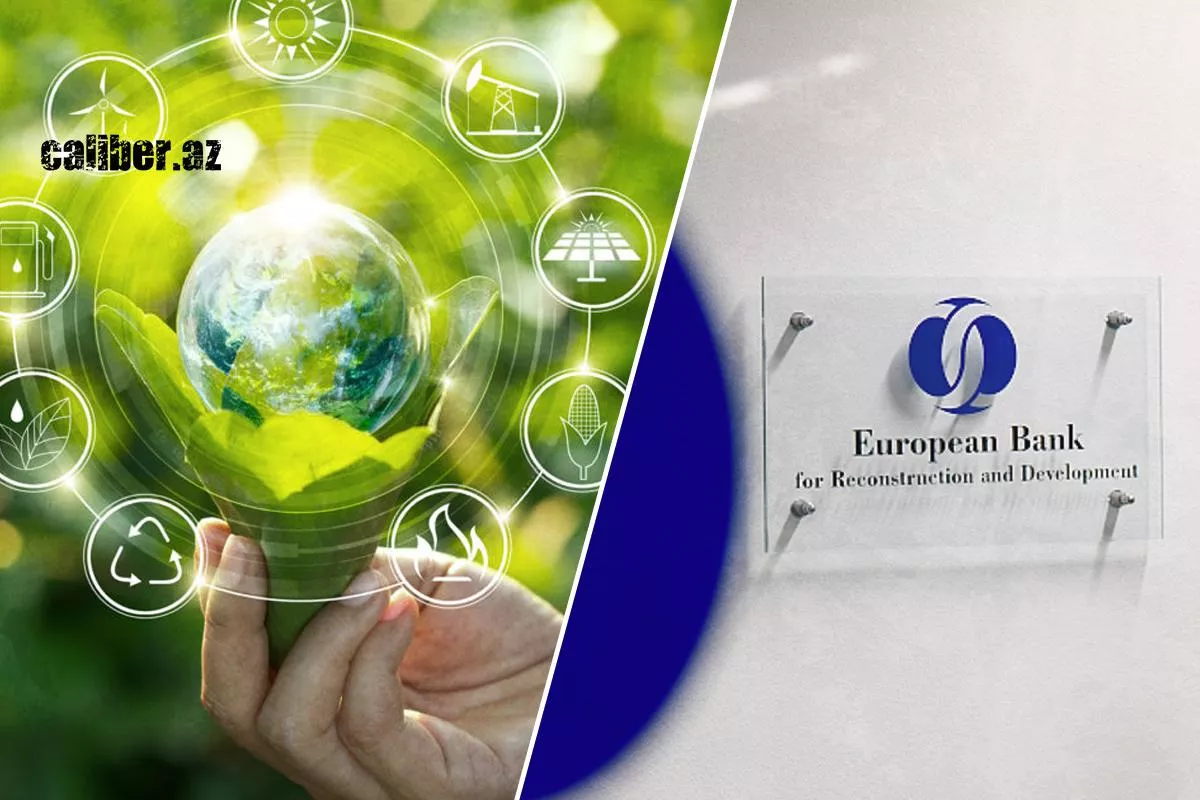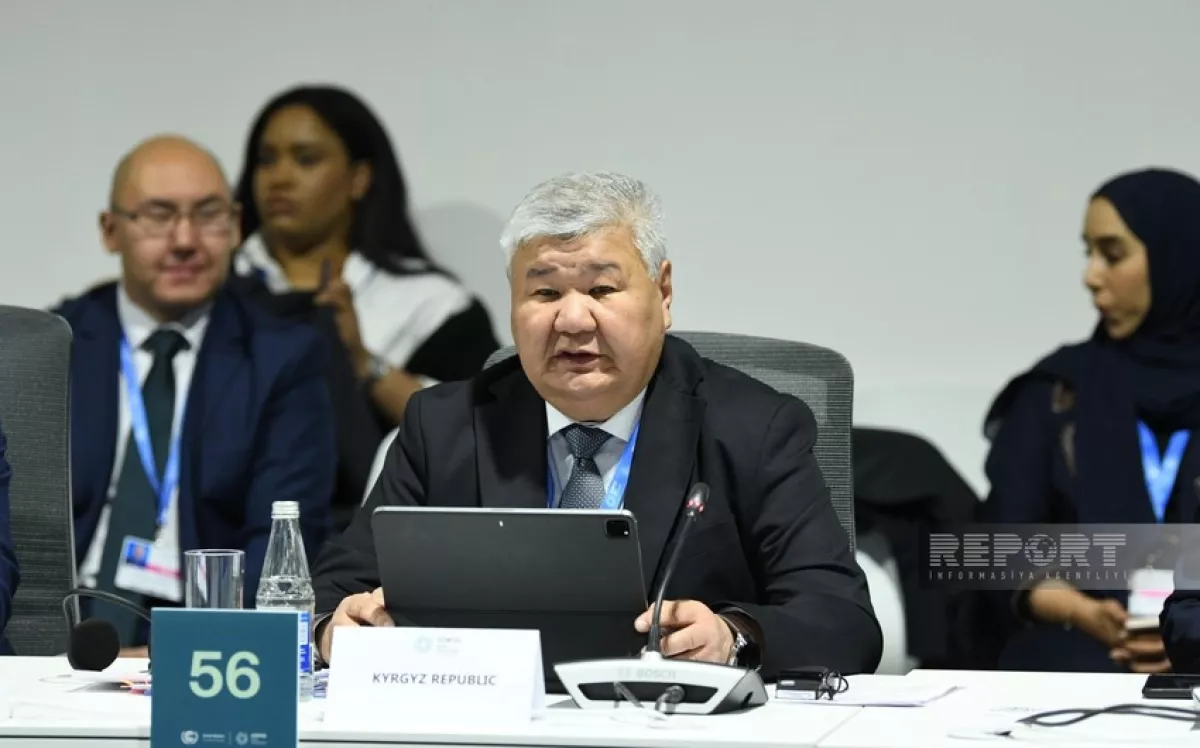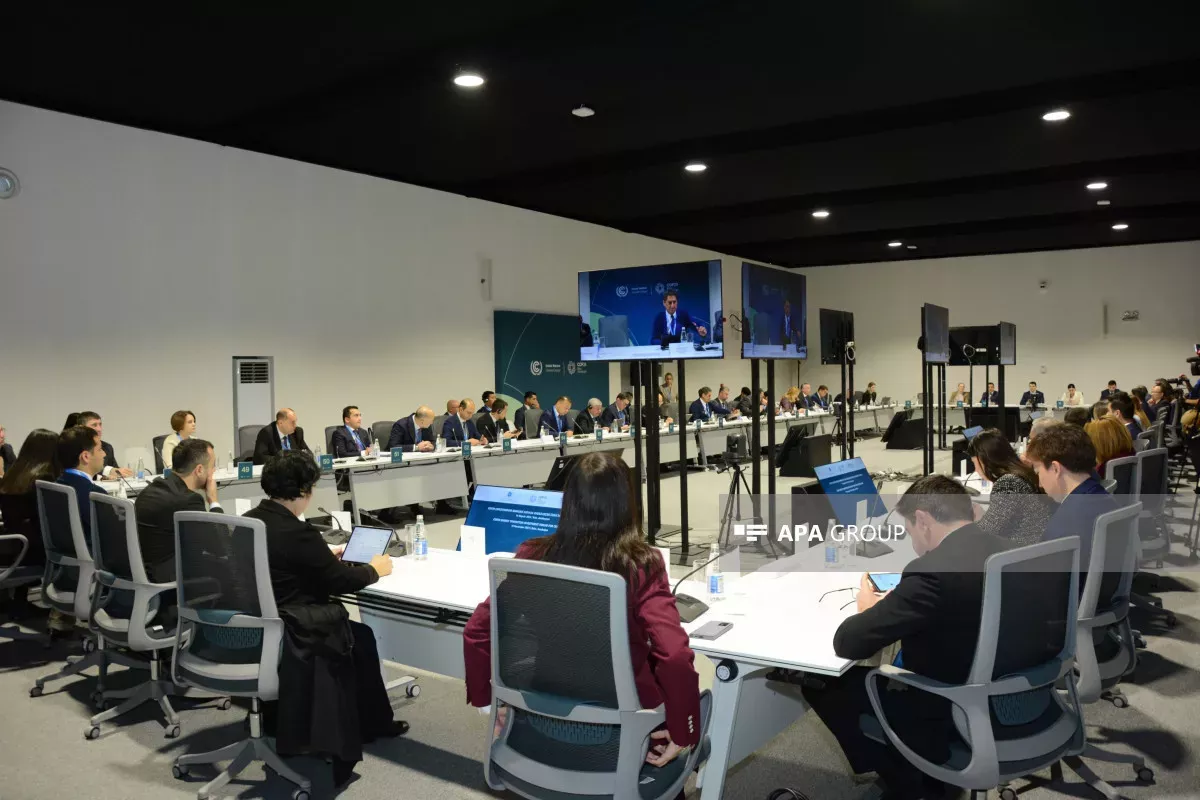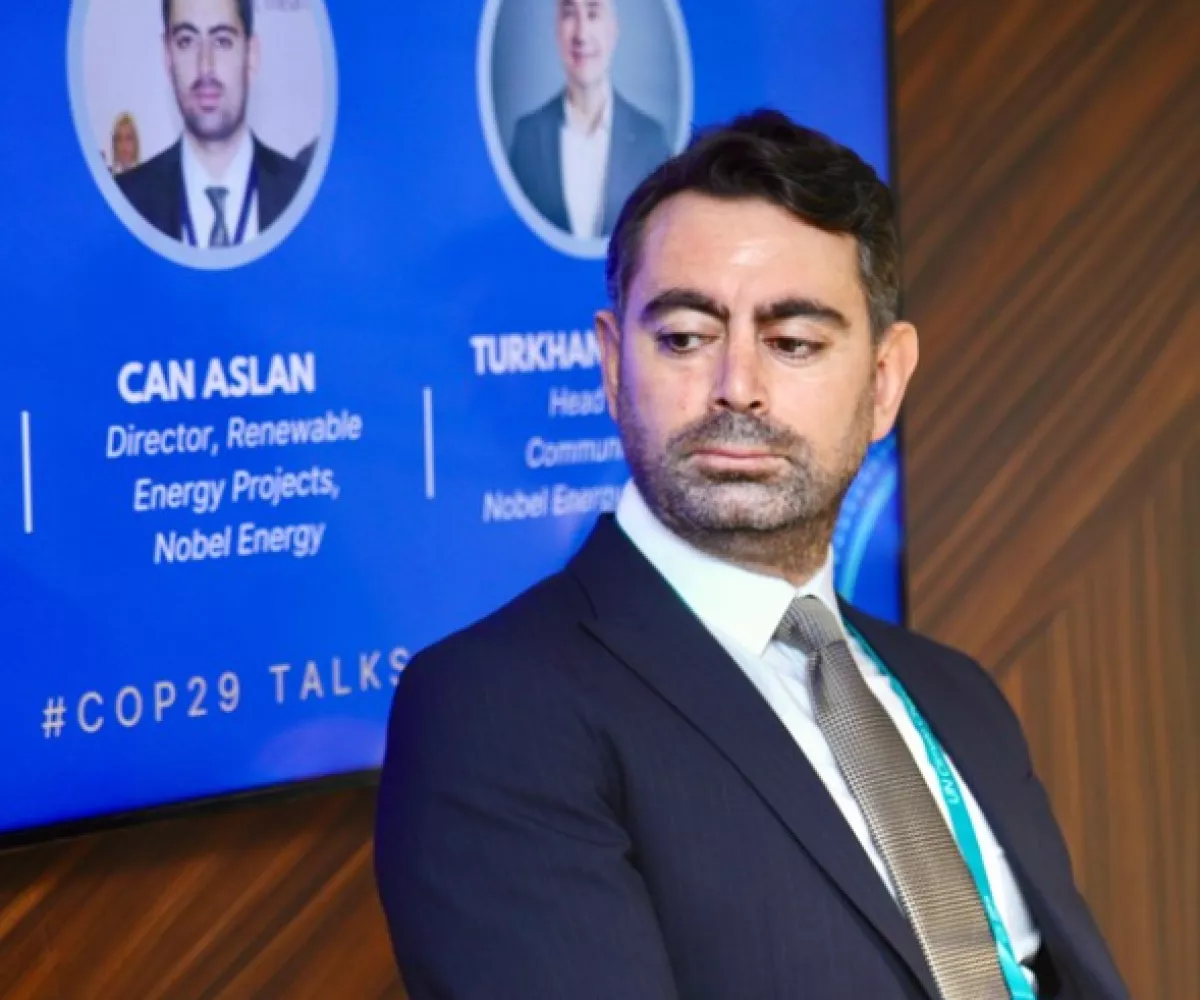State Agency: EU member states to rely on importing "green energy" from Azerbaijan
Deputy Director of the Azerbaijan Renewable Energy Agency Rena Humbatova has said that the EU member states will more rely on importing "green energy" from Azerbaijan in the near future.
She made these remarks during the event entitled “Investing in Renewable Energy: Pathways to a Sustainable Future” within COP29, Caliber.Az reports via local media.
“We must understand how ‘green energy’ will be used and distributed within Azerbaijan. A country undergoing the energy transition must set an ambitious goal and have a clear plan. We’ve developed a national communication document in cooperation with McKinsey Consulting, outlining our vision for implementing renewable energy, including hydrogen technologies. It has been a truly interesting project. We know that solar energy not only is cost-effective but also technically efficient in our lands,” she noted.

Moreover, Director of the Energy and Natural Resources Department for Russia, the Caucasus, and Central Asia at the European Bank for Reconstruction and Development (EBRD) Aida Sitdikova has said that Azerbaijan may announce the results of its renewable energy auction during COP29.
"EBRD is developing renewable energy auctions in 14 countries. Three of them are in Central Asia and Azerbaijan: Uzbekistan, Kazakhstan, and Azerbaijan. I hope that Azerbaijan will announce the results of its first auction, which was conducted with EBRD support, during COP29," Sittdikova said at the Investment Forum on Energy Transition for Central Asia, which is being held as part of COP29.

Kyrgyz Energy Minister Taalaibek Ibrayev has also said at the forum that the development of "green" energy corridors and zones is crucial for addressing global challenges related to climate change and the production of clean electricity.
"Energy ministries across all countries face a very challenging task: to reduce greenhouse gas emissions while simultaneously ensuring access to clean, 'green' electricity for their populations," the minister stated.
He added that, as part of the "green" strategy and the goal of achieving net-zero emissions by 2050, energy ministries must annually increase the share of renewable sources in their energy mix, while implementing innovative technologies for the production, storage, transit, and delivery of clean energy.
"Joining the two declarations from the COP29 climate conference requires participants to take comprehensive measures to reduce dependence on traditional energy resources and promote the development of clean energy. This means creating a powerful and resilient system for green energy generation that is less vulnerable to seasonal fluctuations and weather conditions. In practice, this involves building new wind, solar, and hydroelectric power plants, developing energy infrastructure, enhancing human capacity, and transitioning to energy-saving, energy-efficient technologies," he said.
Ibrayev noted that Kyrgyzstan is experiencing a boom in the construction of small hydropower plants and new solar power stations.
"The country is rapidly transitioning to a new era of 'green' energy. We express our readiness to support Azerbaijan’s initiative to create 'green' energy corridors, zones, and clean energy storage technologies, as well as to develop a unified action plan and strengthen climate financing," he said.
He also highlighted that the joint development of renewable energy projects could lead to more efficient use and management of water resources in Kyrgyzstan and the broader region, while simultaneously producing environmentally clean energy.
"These measures will contribute to strengthening energy, environmental, and food security, not only for our country but for other countries and regions as well," he said.
He also called for a unified effort to combat climate change.

In turn, Uzbek Minister of Energy Jorabek Mirzamahmudov has said that Uzbekistan is accelerating its transition to "green" energy.
He noted that Uzbekistan aims to generate at least 40 per cent of its electricity from renewable energy sources by 2030.
"Our main goal is to increase the share of renewable energy sources in our country," he said.

Renewable projects manager at Nobel Energy Can Aslan has said that the energy transition is no longer just a trend; it has become a key focus for major oil and gas companies. Aslan made these remarks during an event organised by NEQSOL Holding.
He noted that Nobel Energy is actively serving as a key partner in the development of gas infrastructure and is supporting the growth of this sector through private sector involvement.
“We aim not only to ensure energy accessibility but also to place a strong emphasis on 'green energy' projects,” Aslan said.
He stressed that Nobel Energy is committed to supporting the shift to clean energy sources, contributing to environmental sustainability in Azerbaijan and globally.

Moreover, Vice President of the Europe and Central Asia Region at the World Bank Antonella Bassani has said that interconnected energy systems and cross-border trade can help balance the instability of renewable energy sources in Central Asia.
"Renewable energy sources pave the way for enhancing energy security, as they are more affordable than ever and can be produced domestically. To fully unlock the energy potential of Central Asia, deeper regional cooperation is essential. The region holds significant opportunities to leverage untapped benefits of regional trade and expand renewable energy production. Currently, only 2.5 per cent of energy demand in Central Asia is met through trade, despite the use of about 40 per cent of interconnection capacities. Interconnected energy systems and cross-border trade can help balance the variability of renewable energy, stabilise grids, and deliver both economic and environmental benefits. Moreover, such trade can strengthen energy security by reducing vulnerability to fossil fuel price fluctuations and easing the fiscal burden of energy subsidies," she said.
COP29, being held from November 11 to 22 at Baku Stadium, represents Azerbaijan's largest and most significant international event to date, marking the first time the country has hosted a COP summit. The event began with the signing of a Host Country Agreement and other important documents between the Azerbaijani government and the UN Framework Convention on Climate Change (UNFCCC) Secretariat.
A central focus of COP29 is the establishment of a fair and ambitious New Collective Quantitative Goal (NCQG) for climate finance. In line with this, the presidency of COP29 has introduced 14 key initiatives that link climate action to the United Nations Sustainable Development Goals (SDGs). These initiatives cover areas such as green energy corridors, energy storage, climate resilience, clean hydrogen, methane reduction from organic waste, and the development of green digital technologies. One of the flagship proposals is the creation of a Climate Finance Action Fund, aimed at supporting the critical goal of limiting global warming to 1.5°C.
Throughout COP29, Azerbaijan has demonstrated its commitment to climate action and environmental protection. The unanimous decision to elect Azerbaijan as the host for this summit underscores the global community’s trust in the country’s leadership on climate issues. In his opening remarks, President Ilham Aliyev emphasized Azerbaijan’s pivotal role in global climate efforts, underscoring the country’s dedication to mitigating climate change and advancing sustainable development.
By Naila Huseynova








